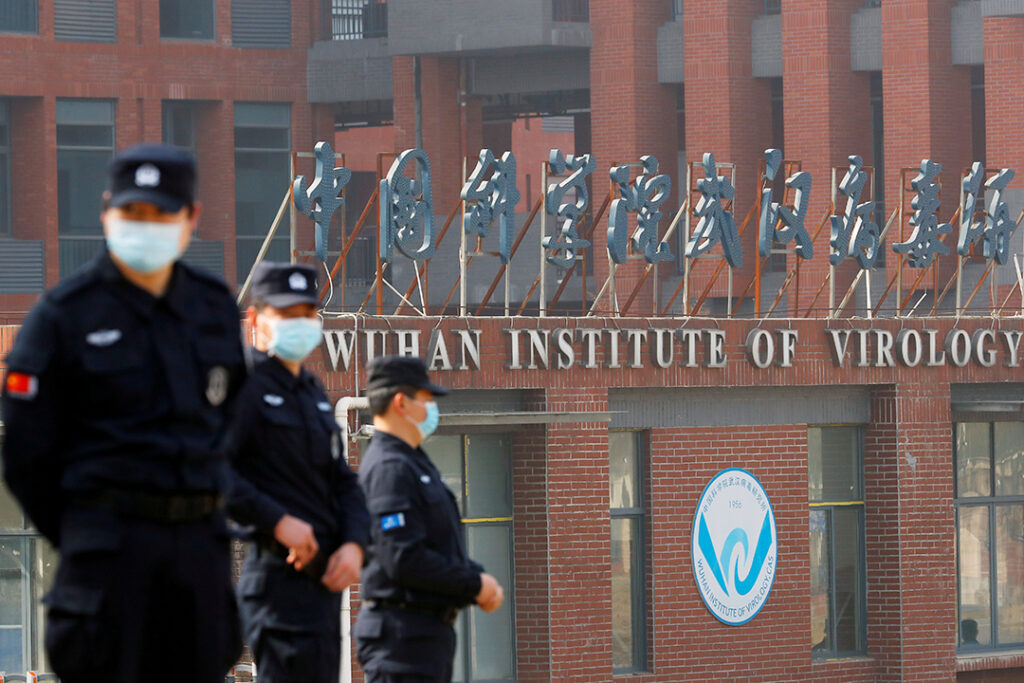ADF STAFF
In its report on the possible origins of the COVID-19 pandemic, the World Health Organization’s (WHO’s) international investigative team dismissed the notion as “extremely unlikely” that the disease escaped from a laboratory at the Wuhan Institute of Virology. Yet many scientists believe that idea deserves more consideration.
Chief among those calling for another look at the laboratory hypothesis: WHO Director-General Dr. Tedros Adhanom Ghebreyesus, the man who commissioned the investigation in the first place.
After the release of the investigators’ report, Tedros said the team’s examination of the potential laboratory leak was not extensive enough. He also criticized Chinese authorities for withholding raw data from early COVID-19 patients.
The final report was designed to reflect the consensus among 17 international experts and 17 Chinese investigators, all of them with ties to the government. Chinese authorities announced on March 17 on Twitter that they had received a draft of the report to review. The report went public nearly two weeks later.
In an open letter published ahead of the WHO report, an international team of scientists led by Jamie Metzl, a virus expert who serves on a WHO genetic engineering advisory committee, denounced the report as compromised and tainted by politics. The letter appeared in the U.S.’s The Wall Street Journal and France’s Le Monde newspapers.
Metzl’s group accused members of the WHO investigative team of having conflicts of interest and being hobbled by restrictions from China. In their letter, Metzl’s group demanded another investigation that addresses the lab-release hypothesis in a “thorough, credible, and transparent investigation.”
One of the letter’s signers, Colin Butler, an honorary professor at the National Centre for Epidemiology and Public Health at Australian National University, published an editorial in December 2020 in the Journal of Human Security calling for a deeper look at the laboratory-release theory.
Butler told ADF he believes it’s “plausible, perhaps even likely” that the COVID-19 virus escaped from a lab, and the WHO investigation is a victim of the growing cold war between China and the West.
“However, even if this was not from a laboratory, it is clear that biological warfare and genetic engineering of viruses led by civilians is quite common,” Butler told ADF by email. “Each practice is highly dangerous and needs far more supervision and transparency.”
An independent investigation would not have let Chinese scientists review the report beforehand, Butler added.
Dr. Peter Ben Embarek, the leader of the WHO investigative team, has defended the group’s work by noting that it focused on looking into potential animal sources of the outbreak, not investigating a laboratory leak. The study also was designed to be a cooperative mission between the WHO and Chinese scientists, he has said.
The WHO team spent four weeks on the ground in Wuhan after initially being denied entry by Chinese authorities.
They spent the first two weeks working virtually with their Chinese counterparts while under quarantine in their hotel. After that, they visited the Huanan Seafood Wholesale Market, the focal point of the COVID-19 outbreak in December 2020 that first alerted public health officials to the rapidly spreading respiratory disease. The market was closed and disinfected by Chinese officials after the outbreak. The ground floor remains barricaded 16 months later.
Investigators also visited the Wuhan Institute of Virology, which sits about 15 kilometers across the Yangtze River from the Huanan market.
The institute hosts researcher Shi Zhengli, known as “the bat woman” for her work on viruses carried by bats. COVID-19 is about 98% similar to viruses found in horseshoe bats that live in southern China, which also were the source of the 2003 SARS outbreak.
During the news conference that accompanied the release of the WHO report in late March, Embarek said investigators reviewed the Wuhan institute’s protocols and research topics.
“Nobody has been able to pick up any firm evidence that any of the labs would have been involved in this,” he said.

